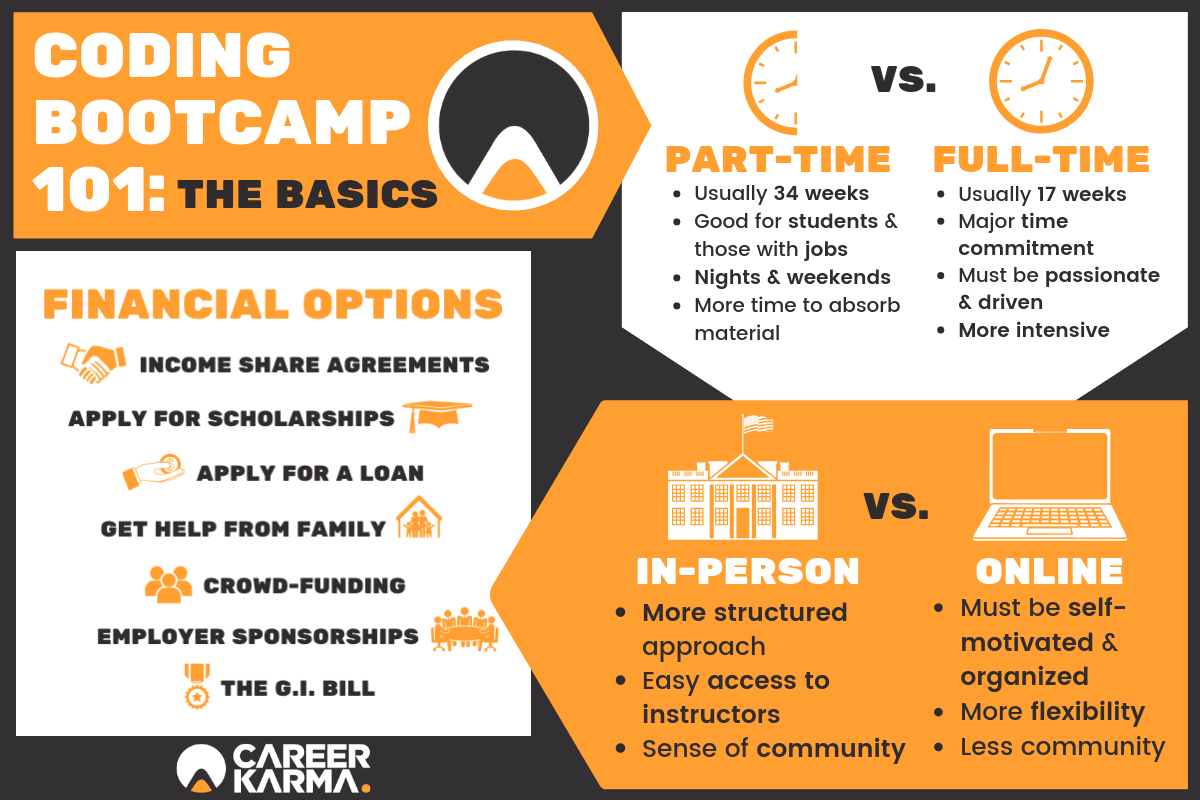Bootcamp Curriculum Effectiveness: Do Coding Bootcamps Work

Coding bootcamps offer intensive training in software development, aiming to equip students with the skills needed for entry-level developer roles. The effectiveness of these programs hinges significantly on the curriculum’s comprehensiveness and relevance to industry demands. A well-structured curriculum should balance theoretical knowledge with practical application, allowing students to build a strong foundation and a portfolio showcasing their abilities.
Do coding bootcamps work – The curriculum’s effectiveness is a key factor in determining a bootcamp’s success. A poorly designed curriculum can leave graduates unprepared for real-world development challenges, while a strong curriculum can propel them to successful careers.
Common Programming Languages and Technologies
Bootcamps typically cover a range of programming languages and technologies crucial for various development roles. The specific languages and technologies offered vary depending on the bootcamp’s specialization (e.g., web development, data science, mobile development), but some common elements are consistently included.
- Front-End Web Development: HTML, CSS, JavaScript, React, Angular, or Vue.js.
- Back-End Web Development: Node.js, Python (with frameworks like Django or Flask), Ruby on Rails, Java, PHP.
- Databases: SQL (MySQL, PostgreSQL), NoSQL (MongoDB).
- Version Control: Git and GitHub.
- Testing Frameworks: Jest, Mocha, Selenium.
- Other Technologies: Depending on the specialization, bootcamps might also include cloud computing platforms (AWS, Google Cloud, Azure), DevOps tools, or specific data science libraries (Pandas, Scikit-learn).
Comparison of Bootcamp Curricula
Different bootcamps emphasize different technologies and approaches. This table compares the curricula of three prominent bootcamps (names are hypothetical for illustrative purposes), highlighting their strengths and weaknesses. Note that curricula are subject to change.
| Bootcamp | Strengths | Weaknesses | Focus |
|---|---|---|---|
| CodeCraft Academy | Strong focus on full-stack development, comprehensive curriculum, excellent career services. | Less emphasis on specific niche technologies, potentially overwhelming for beginners. | Full-Stack Web Development |
| DataDive Institute | Specialized in data science, strong emphasis on Python and relevant libraries, includes projects with real-world datasets. | Limited exposure to front-end development, less focus on general software engineering principles. | Data Science |
| MobileMasters Bootcamp | Focus on mobile app development (iOS and Android), hands-on projects using native and cross-platform frameworks. | Less breadth in web development skills, potentially less job market versatility compared to full-stack programs. | Mobile App Development |
Practical Skills Acquired
Beyond specific technologies, bootcamps aim to develop crucial practical skills applicable across various development roles. These skills are often demonstrated through projects and assignments.
Examples include:
- Problem-solving and critical thinking: Students tackle coding challenges, debug code, and devise efficient solutions to complex problems. A project might involve building a web application that requires implementing a complex algorithm for data processing.
- Collaboration and teamwork: Many bootcamps incorporate group projects, requiring students to collaborate effectively, manage tasks, and resolve conflicts. A common example is a group project to build a larger application with different team members responsible for the front-end, back-end, and database.
- Version control and code management: Students learn to use Git and GitHub to manage their code, collaborate on projects, and track changes. This is fundamental to any professional software development workflow and is usually demonstrated throughout all projects.
- Agile development methodologies: Many bootcamps introduce students to Agile principles and practices, fostering iterative development and efficient project management. This could involve a project where the students are required to deliver incremental features using a scrum-based approach.
- Testing and debugging: Students learn to write unit tests, integration tests, and perform debugging to ensure code quality and functionality. Projects often require rigorous testing to ensure the application functions as expected.
Learning Experience and Support Systems

Coding bootcamps offer a significantly different learning experience compared to traditional university settings. The intensity, focus, and support structures are key differentiators that contribute to their unique appeal and, for many, effectiveness. This section will explore the typical learning environment within a bootcamp, contrasting it with a university experience, and outlining the crucial support systems designed to foster student success.
The immersive nature of coding bootcamps is a defining characteristic. Unlike the more spread-out curriculum of a university degree, bootcamps deliver a concentrated, fast-paced program typically lasting several months. This intensive approach necessitates a highly structured learning environment.
Teaching Methods and Class Structure
Bootcamps typically employ a hands-on, project-based learning approach. Instruction often involves a combination of lectures, interactive workshops, pair programming exercises, and individual projects. Instructors are frequently working professionals with significant industry experience, providing real-world context and practical guidance. Class sizes vary, but generally tend to be smaller than traditional university lectures, allowing for more personalized attention and interaction between instructors and students. This allows for more immediate feedback and a greater sense of community within the cohort. The smaller class size also facilitates more effective pair programming sessions, a common teaching method in bootcamps where students work collaboratively to solve coding problems.
Bootcamp versus University Learning
The learning experience in a bootcamp differs substantially from a traditional university setting. Universities often offer a broader, more theoretical education, with a longer timeframe and a greater emphasis on academic research and coursework. Bootcamps, conversely, prioritize practical skills acquisition and rapid job placement. The curriculum is tightly focused on in-demand technologies, and the fast-paced nature of the program demands significant self-discipline and time commitment from students. While universities provide a more comprehensive educational foundation, bootcamps offer a targeted, intensive pathway to a career in tech. This difference reflects differing goals: a university degree aims for a wider educational base, while a bootcamp aims for immediate career readiness.
Support Systems for Bootcamp Students, Do coding bootcamps work
Bootcamps understand that success requires more than just technical skills. They invest heavily in comprehensive support systems designed to help students navigate the challenges of the program and transition into the tech industry.
- Career Services: Most bootcamps provide dedicated career services, including resume and portfolio reviews, mock interviews, job search workshops, and assistance with networking. These services are crucial in helping graduates secure job offers upon completion of the program. Many bootcamps boast impressive job placement rates, often exceeding 80%, as a testament to the effectiveness of their career services.
- Mentorship Programs: Many bootcamps offer mentorship programs, connecting students with experienced professionals in the tech industry. These mentors provide guidance, advice, and support throughout the program and beyond, offering valuable insights into career paths and industry trends. This personalized guidance can be particularly beneficial for students transitioning from non-technical backgrounds.
- Networking Opportunities: Bootcamps often facilitate networking opportunities through events, workshops, and alumni networks. These connections can be invaluable in finding job opportunities and building a professional network within the tech community. The cohort itself often forms strong bonds, creating a supportive peer network that extends beyond the duration of the program.


Tim Redaksi